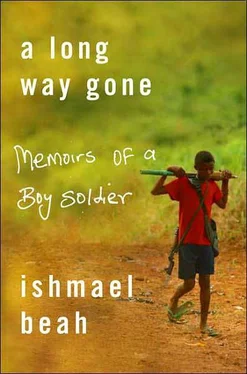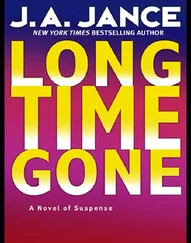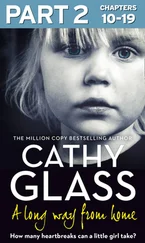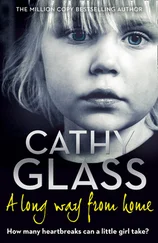“Yes, yes.” We all agreed with Kanei and went wandering into our own thoughts, which were interrupted by a sudden burst of rain. We hadn’t listened to our host and left when he’d told us to. We hastened to the hut. There, we sat around the fire to dry ourselves and eat dried fish.
We had been with our host for two weeks and were feeling better when very early one morning, an older woman came to the hut. She woke us and told us to leave immediately. She said she was the mother of our host and that the people in the village had found out about us and were on their way to capture us. From the way she spoke, I could tell that she had known about us all along. She brought with her dried fish and fresh water for us to take on our journey. We didn’t have enough time to thank her and tell her to thank her son for his hospitality. But from what she said, it was clear that she knew we were thankful and she cared about our safety more than anything else.
“My children, you must hurry now, and my blessings are with you.” Her voice was trembling with sadness, and she wiped her disconsolate face as she disappeared behind the hut and headed back to the main village.
We were not fast enough to escape the men who came for us. Twelve of them ran after the seven of us, wrestling us to the sand. They tied our hands.
In truth, realizing that I would eventually be caught, I had stopped running and offered my hands to be tied. The man chasing me was a little taken aback. He approached me with caution and motioned another man walking behind me with a stick and machete to pay attention. As the man tied my hands, we exchanged a glance that lasted a few seconds. I opened my eyes wide, trying to tell him that I was just a twelve-year-old boy. But something in his eyes told me that he didn’t care for my safety but only for his and his village’s.
The men walked us to their village and made us sit outside in the sand in front of their chief. I had been through this before, and wondered if it was a new experience for my present traveling companions. They were all heaving as they tried to hold back their cries. I began to worry, because last time I had found someone in the village who had gone to school with us and saved us. This time we were a long way from Mattru Jong. A long way gone.
Most of the men were shirtless, but the chief was elegantly dressed. He wore traditional cotton clothes with intricate designs on the collar made of yellow and brown thread, zigzagged vertically across his chest. His brown leather sandals looked new and he carried a staff with carvings of birds, canoes, all sorts of animals, and a lion’s head on the handle. The chief examined us for a while, and when he caught my eye, I gave him half a smile, which he dismissed by spitting on the ground from the kola nut he chewed. His voice was hoarse.
“You children have become little devils, but you came to the wrong village.” He used his staff to gesture instead of his hands. “Well, this is the end of the road for devils like you. Out there in the ocean, even you rascals cannot survive.”
“Undress them,” he commanded the men who had caught us. I was trembling with fear but unable to cry. Alhaji, who stammered with terror, tried to say something, but the chief kicked the side of the stool that he sat on and proclaimed, “I do not want to hear any word from a devil.”
Our nameless host and his mother stood in the crowd. His mother squeezed his hand each time the chief called us devils or screamed at us. As I was being undressed, the rap cassettes fell out of my pockets and the man who undressed me picked them up and handed them to the chief. The chief looked closely at the faces on the covers of the cassette cases. He carefully examined the Naughty by Nature cassette cover over and over, looking at the militant stance and tough expression on the faces of the three guys standing on broken rocks with a lamppost in the background, puzzled by their poses. He demanded that a cassette player be brought. One of the men told the chief that the only way we could possess such foreign cassettes was either by having looted them or if we were mercenaries. The chief may have bought the man’s first point, but he disregarded his second point, as it was utterly stupid.
“These boys are no mercenaries, look at them.” The chief went back to inspecting the cassettes. I was a little glad that he had called us boys and refrained from the word “devil.” But I was extremely uncomfortable sitting naked in the sand. It was not a pleasant experience. Just the thought of what was happening was enough to get me agitated. I fought hard mentally to let my face show the opposite of what I felt. The flesh on my face twitched as we waited for the chief to grant us life or death.
When the cassette player was brought, the chief put the cassette in and pressed “play.” OPP how can I explain itI’ll take you frame by frame itTo have y’all jumpin’ shall we singin’ itO is for Other P is for People scratchin’ temple…
Everyone listened attentively, raising their eyebrows and cocking their heads as they tried to understand what kind of music this was. The chief abruptly stopped the song. Some of the villagers leaned against their round mud huts and others sat on the ground or on mortars. The men rolled the legs of their taffeta pants, women adjusted their wrappers, and the children stared at us, their hands inside their pockets or in their runny noses.
“Stand him up and bring him here,” the chief commanded.
When I was brought closer, he asked me where I had gotten this type of music and what was the point of having it. I explained to him that it was called rap music and that myself, my brother, and my friends—not the ones I was with—used to listen to it and perform the songs at talent shows. I could tell that he found this interesting, as his face was beginning to relax. He asked the men to untie me and give me my pants.
“Now you show me how you, your brother, and friends did it,” the chief said.
I rewound the tape, mimed, and danced to “OPP” barefoot in the sand. I didn’t enjoy it, and for the first time I found myself thinking about the words of the song, closely listening to the subtle instruments in the beat. I had never done such a thing before, because I knew the words by heart and felt the beat. I didn’t feel it this time. As I hopped up and down, hunched and raising my arms and feet to the music, I thought about being thrown in the ocean, about how difficult it would be to know that death was inevitable. The wrinkles on the chief’s forehead began to ease. He still didn’t smile, but he gave a sigh that said I was just a child. At the end of the song, he rubbed his beard and said that he was impressed with my dancing and found the singing “interesting.” He asked for the next cassette to be played. It was LL Cool J. I mimed the song “I Need Love.” When I’m alone in my room sometimes I stare at the walland in the back of my mind I hear my conscience call
The chief turned his head from side to side as if trying to understand what I was saying. I watched him to see if his face was going to change for the worse, but a look of amusement flickered on his face. He ordered that all my friends be untied and given back their clothes. The chief explained to everyone that there had been a misunderstanding and that we were only children looking for safety. He wanted to know if we had stayed in the hut of our own accord or if the owner knew about us. I told him that we had stayed there on our own and that we hadn’t come in contact with anyone until that morning. The chief told us that he was letting us go, but that we had to leave the area immediately. He gave me back my cassettes and we were on our way. As we walked, we examined the rope marks on our wrists and laughed about what had happened to avoid crying.
Читать дальше












